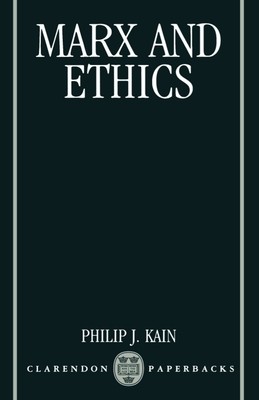
- We will send in 10–14 business days.
- Author: Philip J Kain
- Publisher: Clarendon Press
- ISBN-10: 0198239327
- ISBN-13: 9780198239321
- Format: 14 x 21.6 x 1.5 cm, softcover
- Language: English
- SAVE -10% with code: EXTRA
Reviews
Description
This book traces the development of Marx's ethics as they underwent various shifts and changes during different periods of his thought. In his early writings, his ethics were based on a concept of essence much like Aristotle's, which Marx tried to link to a principle of universalization similar to Kant's "categorical imperative." In the period 1845-46, Marx abandoned this view, holding morality to be incompatible with his historical materialism. In the later work he was less of a determinist. Though he no longer wished to reject morality, he did want to transcend a morality of burdensome obligation and constraint in order to realize a community built upon spontaneous bonds of solidarity.
EXTRA 10 % discount with code: EXTRA
The promotion ends in 15d.03:04:04
The discount code is valid when purchasing from 10 €. Discounts do not stack.
- Author: Philip J Kain
- Publisher: Clarendon Press
- ISBN-10: 0198239327
- ISBN-13: 9780198239321
- Format: 14 x 21.6 x 1.5 cm, softcover
- Language: English English
This book traces the development of Marx's ethics as they underwent various shifts and changes during different periods of his thought. In his early writings, his ethics were based on a concept of essence much like Aristotle's, which Marx tried to link to a principle of universalization similar to Kant's "categorical imperative." In the period 1845-46, Marx abandoned this view, holding morality to be incompatible with his historical materialism. In the later work he was less of a determinist. Though he no longer wished to reject morality, he did want to transcend a morality of burdensome obligation and constraint in order to realize a community built upon spontaneous bonds of solidarity.


Reviews